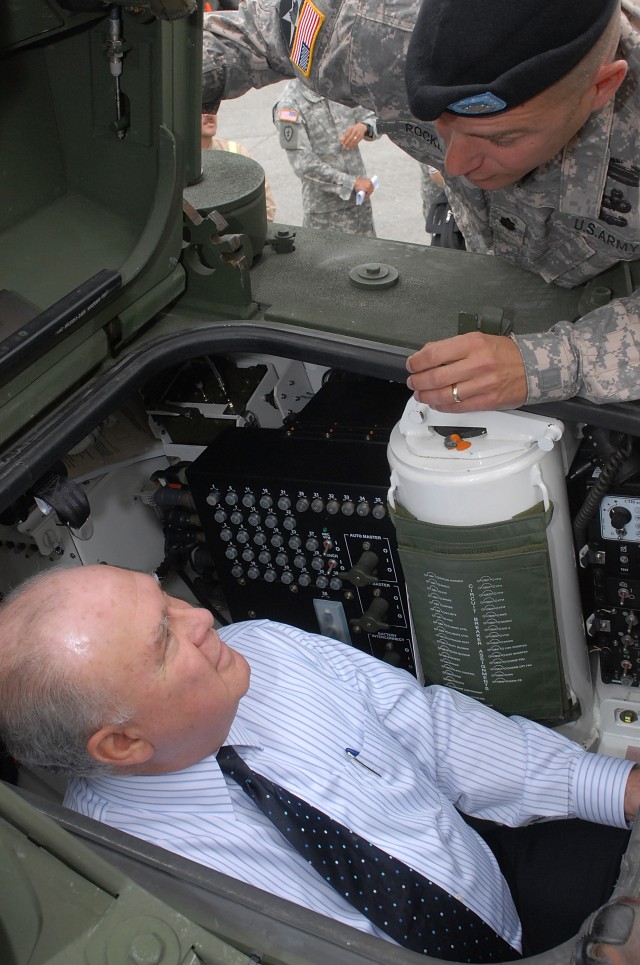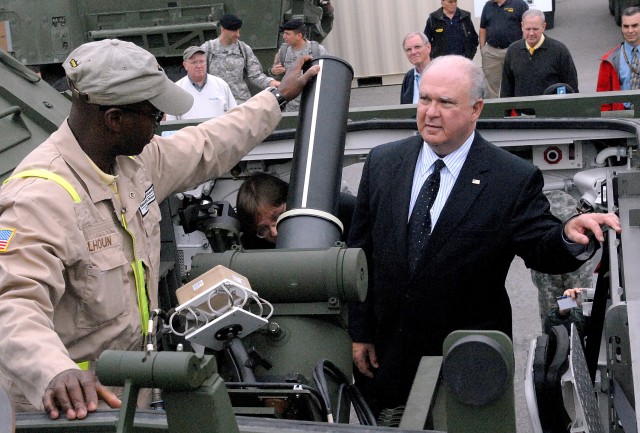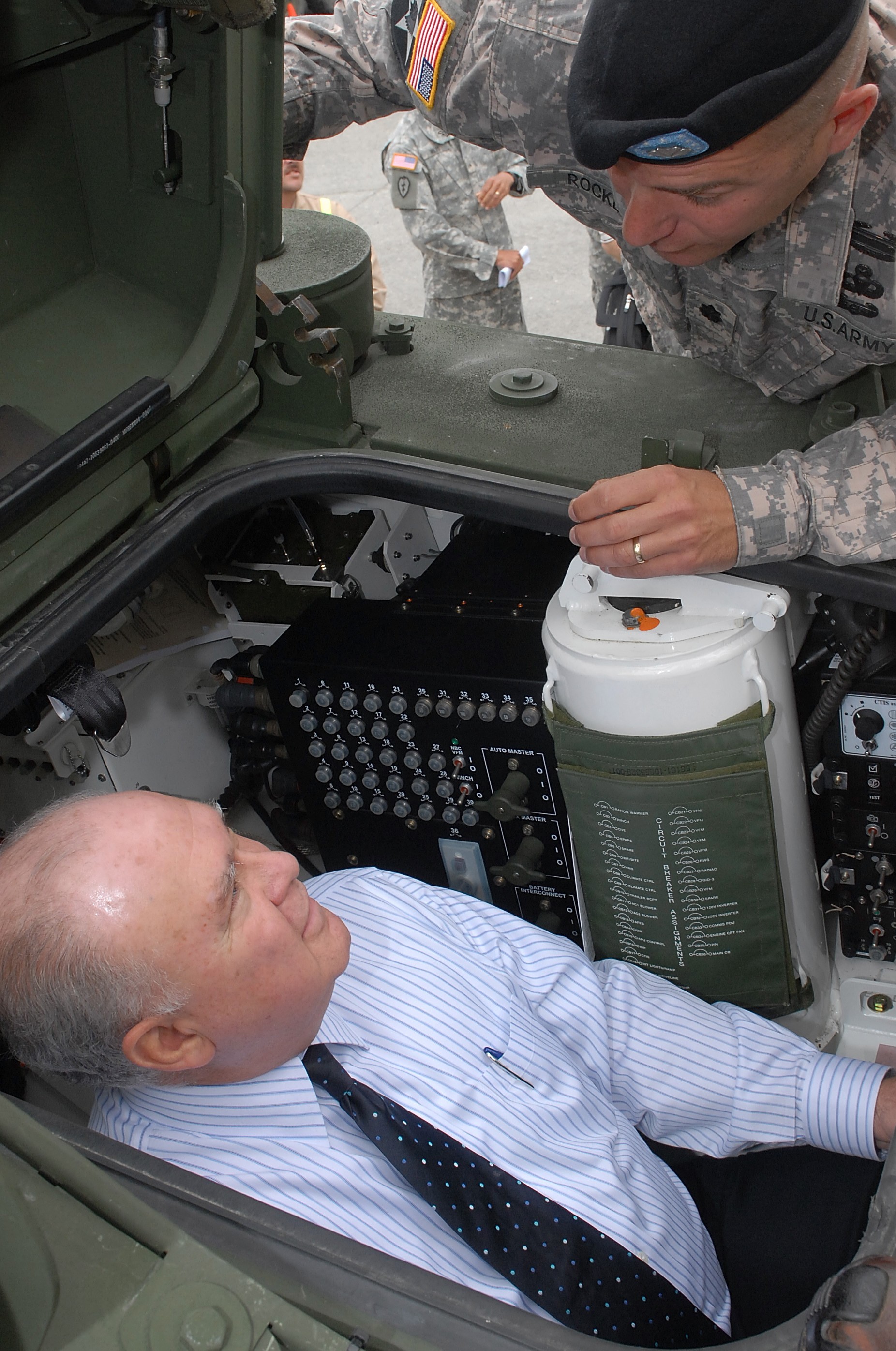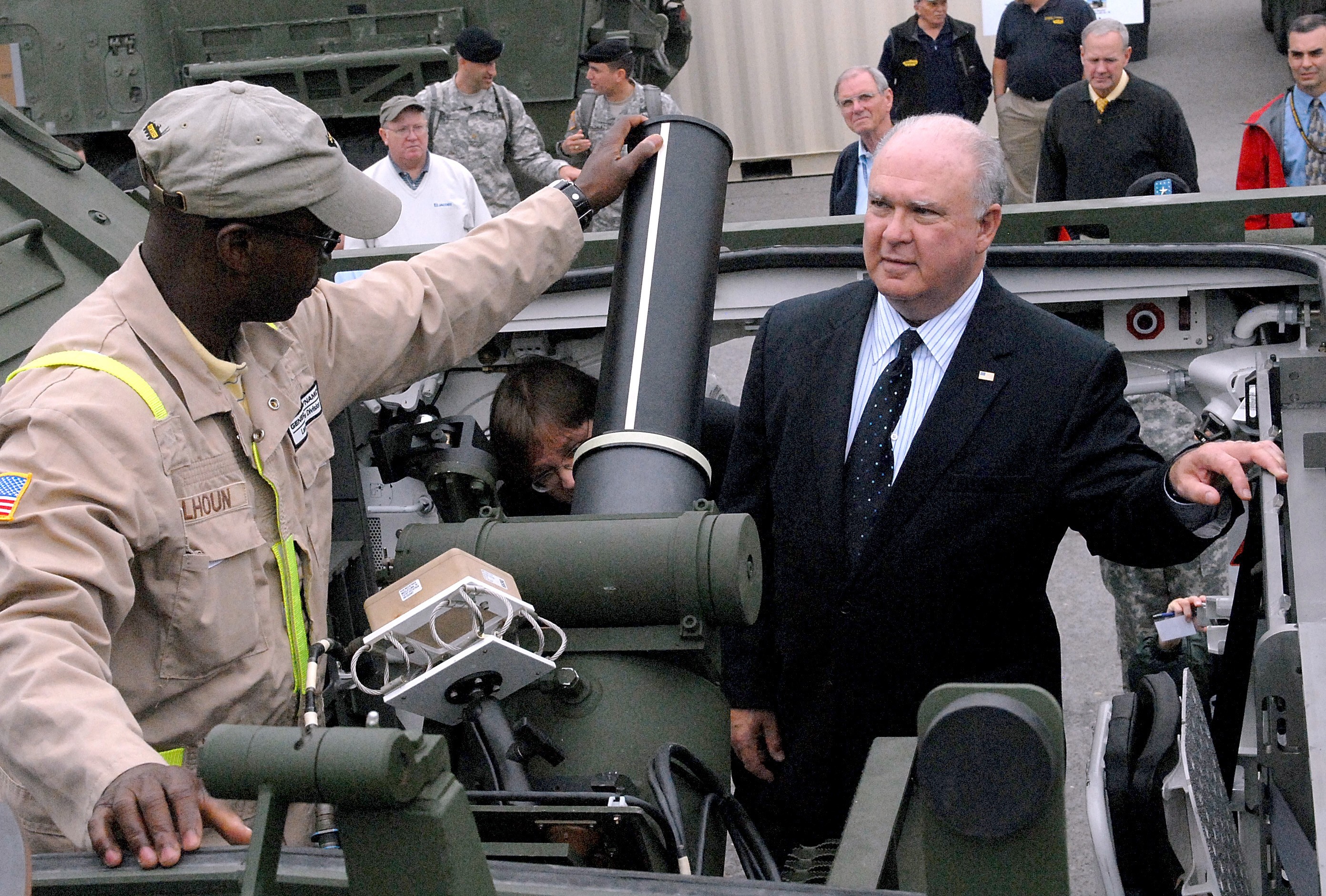JOINT BASE LEWIS-MCCHORD, Wash. - An Army leader left Joint Base Lewis-McChord this week impressed with what he saw.
The second highest-ranking civilian at Department of the Army noted Monday evening the breadth and tempo of activities on the joint installation.
Joseph Westphal, the under secretary of the Army, spent Monday and Tuesday reviewing JBLM and I Corps programs, receiving briefings, promoting an officer and sharing lunch with newly redeployed Stryker Soldiers. His impression at the end of the first day, he said, was of "the tremendous variety of things going on here."
Westphal used an exclusive interview with the Northwest Guardian to renew the Army's commitment to some crucial priorities and to thank service members who prosecute the nation's wars and the families who wait for them. He specifically addressed the 18,000 JBLM-based Soldiers and Airmen who deployed during the past 12 months.
"Their country has great appreciation for what they do, and that is a very important marker because we need the support of the people of this country for our Army to be as successful as it is," Westphal said.
"Folks are really appreciative of what they've done ... They ought to be very proud when they come back, of the support they have of the American people, from Congress, and certainly ... from their commander in chief."
One tangible way the nation shows its appreciation, he said, is in its total commitment to thorough reintegration of deploying service members.
"We are so committed to it that we have focused all of our efforts to ensuring that transition (from deployment to non-combat life) is a healthy, positive one," Westphal said. "Soldiers are coming back with a great deal of issues related to ... injuries they've received in combat or the stress of being away from their families."
Army medical organizations have increased the pace and span of available services for returning service members. There are more resources available than ever before, but more remains to be done.
"We're getting better at this," the under secretary said. "But it's something that we can't pat ourselves on the back and say 'OK, we got it.' We've got to continue to know it better, understand it better and be more supportive."
Another area in which Westphal acknowledged JBLM has made important strides is its environmental programs. But like reintegration, more effort is required.
"Our Army's commitment (to the environment) needs to be stronger," Westphal said. "I think in the last nine years we have struggled in supporting the missions, supporting our war fighters, and we have not put enough resources, not put enough attention to this. And I think we are going to do that now."
The Army's environmental priority reflects a national priority, he said.
"We are deeply committed, not only in the Army but across the government, to doing more to be energy sustainable, protect the environment and enhance our way of life," said Westphal, a former professor of environmental science.
"There are installations like this one that have shown the way ahead, that have been innovative, creative and have put resources behind it," he said. "We (can) use these as models across the country. The Army is committed to it, but we need to be more aggressive in allocating resources to moving out on these areas, particularly on the energy side."
The under secretary had more praise for JBLM for its success in joining Army and Air Force cultures under the Defense Department's Base Realignment and Closure program. The process was still underway, he said, but he called the joining of the former McChord Air Force Base and Fort Lewis "remarkably uneventful - in the sense that you don't have percolating to headquarters, departments of the Army, Navy or Air Force, big issues that we need to contend with to resolve. Those are positive signs so far.
"There are going to be more and more challenges down the road," Westphal said, "but I think we'll find a way to address them."
To help address future challenges, Westphal has begun regularly coordinating with his counterpart under secretaries of the Navy and Air Force.
"(We) are also working very closely together for the first time," he said. "That's never happened before. We're meeting on a regular basis, engaged in all aspects of work, trying to be more joint. And one of the areas we're going to pay a lot of attention to is the joint-base issues."
At the mid point of his visit, Westphal clearly approved of the activities on JBLM.
"(There are) a lot of very exciting things going on," he said. "And as always, (I am) very proud of the Army and how organized it is and how well it manages different problems at different times."
Westphal is no stranger to the Pacific Northwest. As acting secretary of the Army in 2001, he visited Fort Lewis during the formation of the Army's first Stryker brigade. He also attended a series of meetings in Seattle as assistant secretary of the Army for civil works about a variety of environmental issues concerning salmon and dams on the Snake and Columbia rivers.
Don Kramer is a reporter with Joint Base Lewis-McChord's weekly newspaper, the Northwest Guardian.




Social Sharing